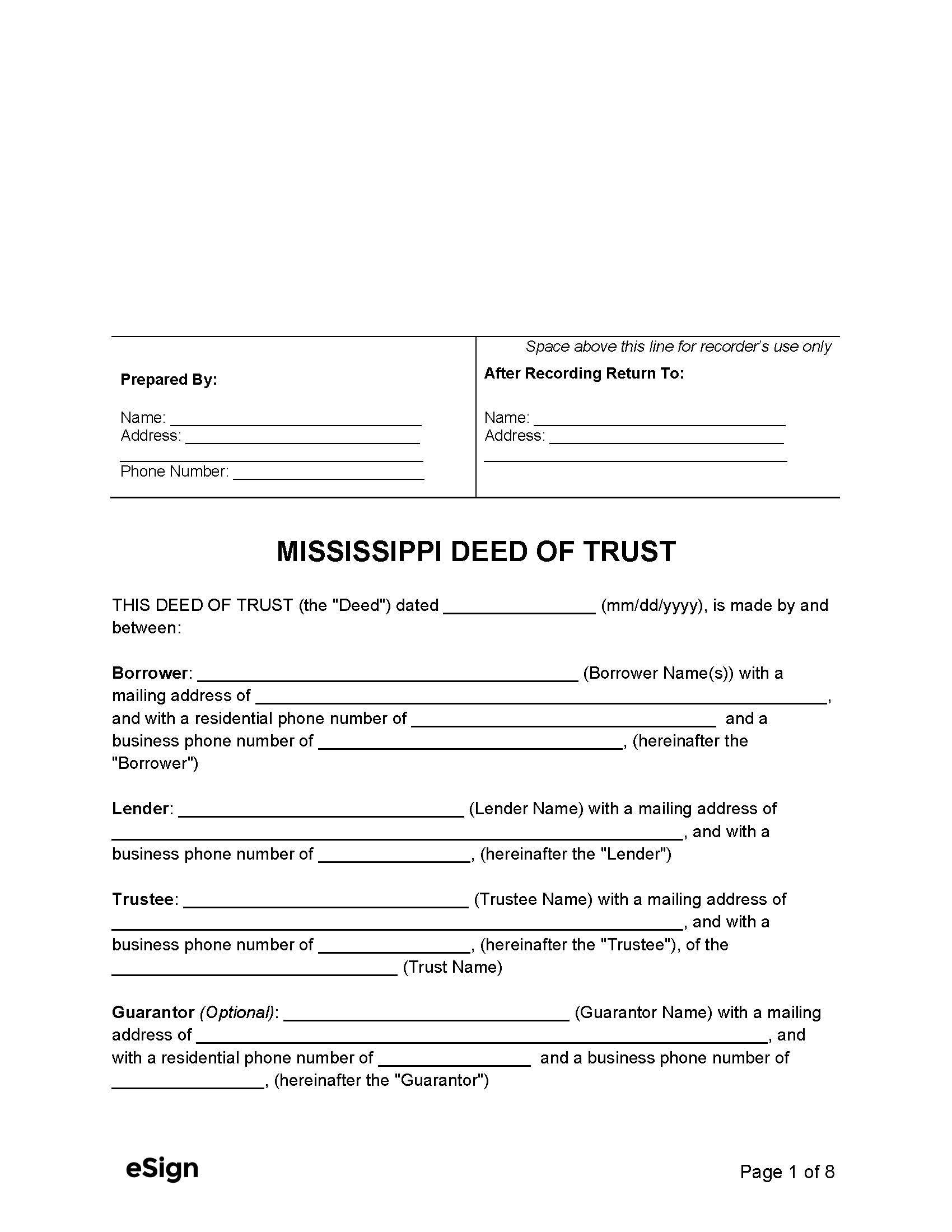Formatting Requirements
Deeds of trust require the signatures of the grantor and a notary public.[1] The document must be filed with the Chancery Clerk’s Office for the county where the property is located.
Documents must be formatted as follows before being presented for recording[2]:
- White paper
- Text must be at least 10pt in size
- Margins must be 0.75″, except for a 3″ top margin on the first page
